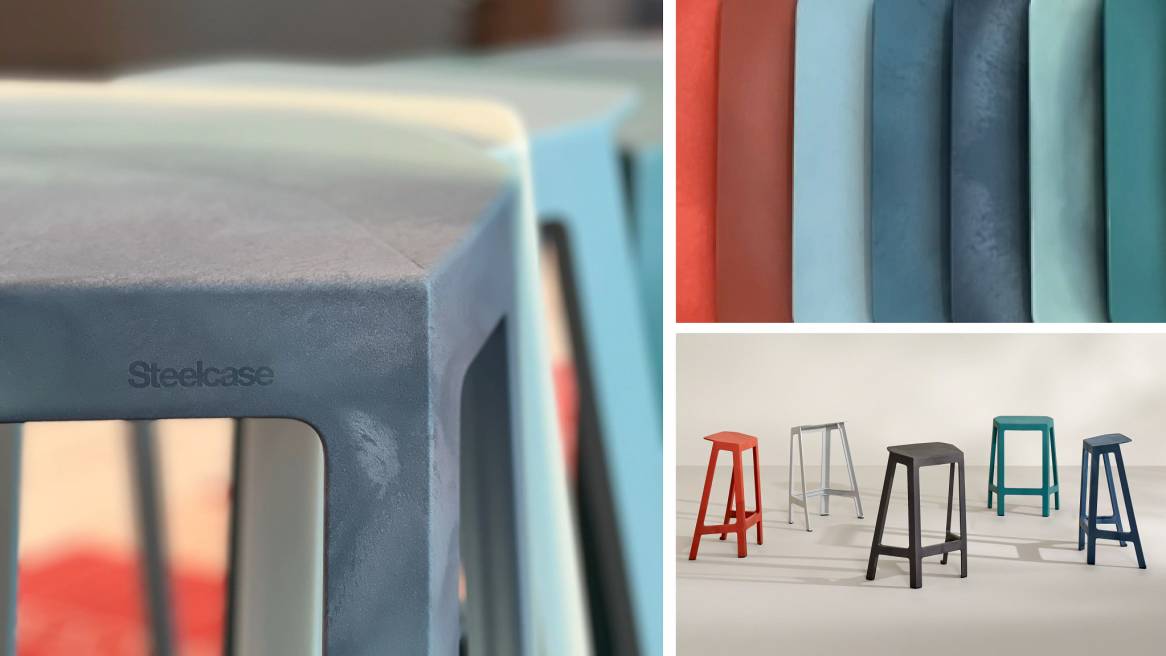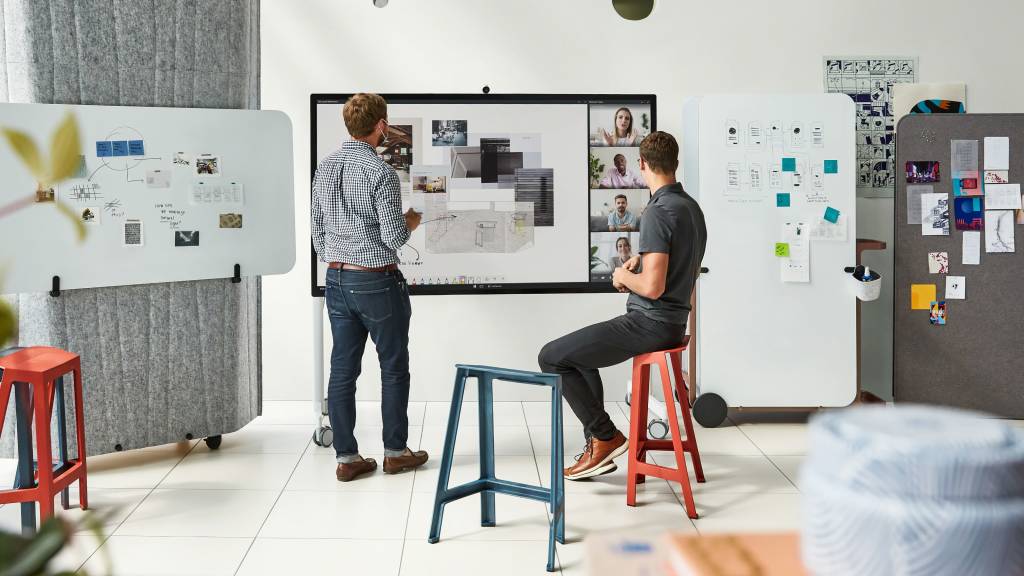More Than Just ‘Posturing’: New Perch Stool Designed for Circularity
How Steelcase is turning computer production waste into recyclable stools that play a key role in hybrid work
It all started with a mission to make a highly-functional office stool tailored to the new world of work that could be made without the use of fossil fuels: A chair formed for environmental and circular sustainability and informed by the versatile and flexible nature of hybrid office collaboration. Steelcase teams researched various types of sustainable materials, including plant-based resins and reclaimed ocean plastics before deciding they needed a different material to hold up to the rigors of office life. Their search ended when they discovered global chemical engineering firm BASF’s new advanced recycling technology known as ‘Ccycling’ which solved the problem in a new way.
.Made for the environment, designed for hybrid work
Steelcase Flex Perch Stool was designed to address the need for increased fluidity, flexibility and active collaboration. Perch is the perfect solution when you need a quick place to rest, while keeping you in an active posture, so you can easily stand and engage with team members or displayed content. Part of the Steelcase Flex Collection, the stool can be nested with any number of other Flex Perch stools to create space-saving, compact rows or fanned out groups around the room where they’re needed. Lightweight and agile, the stools glide across hard floors and carpet with ease and can be in place within seconds to meet your team’s needs.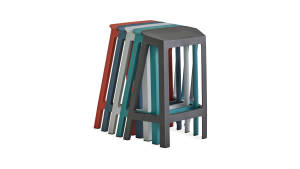
Waste from electronics production is a big deal. According to the Environmental Protection Agency, the average household uses 28 different electronic devices on a daily basis and about 2.7 million tons of electronic consumer goods were produced in the U.S. in 2018 alone. What does that mean in terms of drain on resources? According to the American Association for the Advancement of Science, the production of one computer and monitor requires:
- 500 Pounds of fossil fuels
- 50 Pounds of chemicals
- 1.5 tons of water
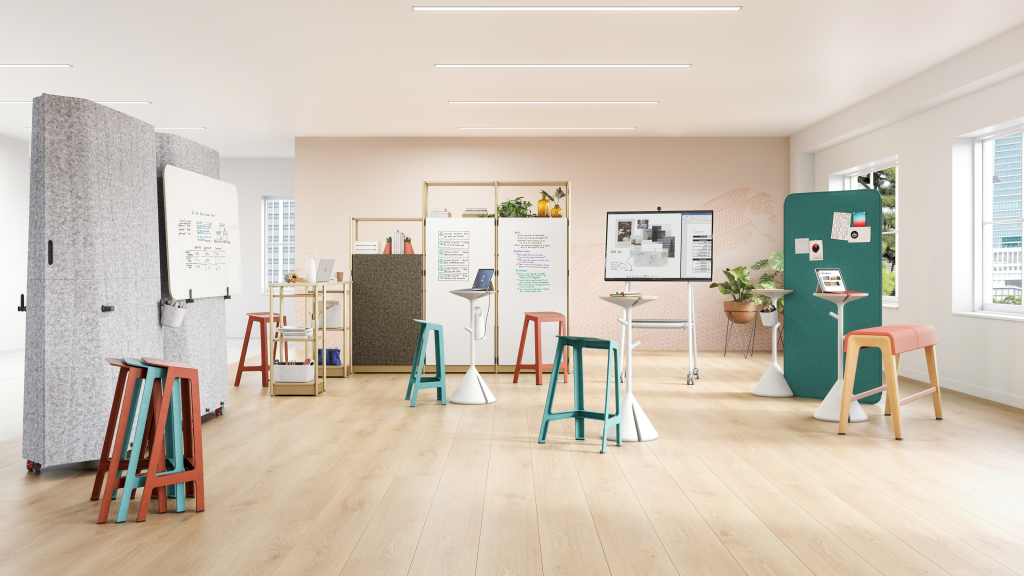
That’s where BASF’s CCycling comes in. The advanced e-waste recycling method is among the first to work towards rescuing parts of this electronics manufacturing waste stream from incineration for a productive purpose.
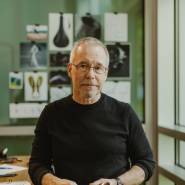 “Typically speaking, we don’t imagine that waste from manufacturing electronics can be effectively recycled, and typically it’s not. In this case, they can actually be remade into high performance, high quality product materials and formed into products like the Steelcase Flex Perch Stool,” says Bruce Smith, director of Global Design at Steelcase, “It’s truly remarkable. It’s using waste instead of virgin fossil fuel. We eliminate our reliance on fossil fuel resources and our carbon footprint in the process.”
“Typically speaking, we don’t imagine that waste from manufacturing electronics can be effectively recycled, and typically it’s not. In this case, they can actually be remade into high performance, high quality product materials and formed into products like the Steelcase Flex Perch Stool,” says Bruce Smith, director of Global Design at Steelcase, “It’s truly remarkable. It’s using waste instead of virgin fossil fuel. We eliminate our reliance on fossil fuel resources and our carbon footprint in the process.”
.The Steelcase Flex Perch Stool weighs 8.5 pounds and is comprised of BASF nylon resin, which is 70% recycled content. The chair itself is 100% recyclable.
Smith anticipates that as more companies adopt Ccyling methods and processes and supply lines mature, the percentage of recycled content in Perch will increase from 70%.
“It’s a great example of how Steelcase can lead the engagement and material processes that will profoundly reduce waste and our reliance on fossil fuels in the future,” Smith says.
With Perch, one of the team’s primary objectives was to eliminate waste wherever possible. Typically, during the manufacturing process, when switching production from one color to the next, the different colored plastics get mixed, creating multi-colored stools that are entirely functional, but can’t be sold. Rather than letting those go to waste the team decided to gift these mixed color versions to social innovation partners around the world.
“The inconsistent mixing of these colors in the stools is a great representation of the inherent messiness that is endured through times of transition and change, which replicates the initiatives that these organizations are working toward,” says Gina Cellentani, senior marketing specialist for Steelcase.
According to Smith, the advent of the Flex Perch Stool is a sustainability win, but the company continues to focus on making more progress. Through a renewed focus on responsible materials management, we are minimizing total waste impacts through scrap reduction and prevention in our own operations. We are also focusing on reducing single use plastics and increasing recycled content in all packaging, he says.
“Perch is a great story. But it’s just one story,” reinforces Smith. “There’s a lot more we can continue to do to move the needle.”
See Steelcase Flex Perch For Yourself
Try out the Steelcase Flex Perch Stool today
Make an appointment to visit any of our showrooms in Asia for an immersive experience in creating and improving hybrid collaboration spaces today.

